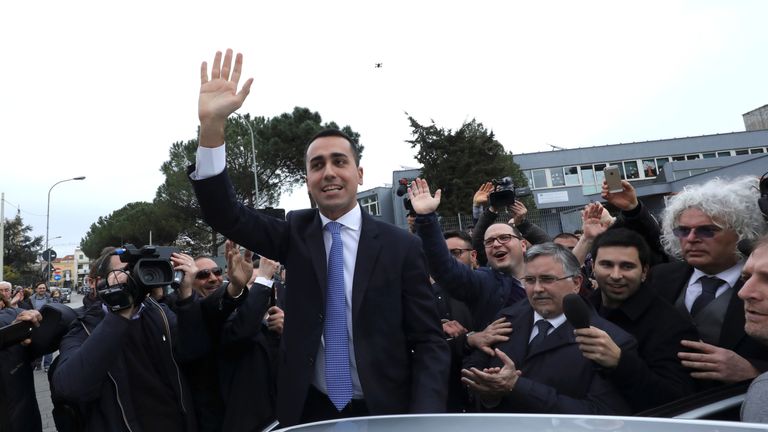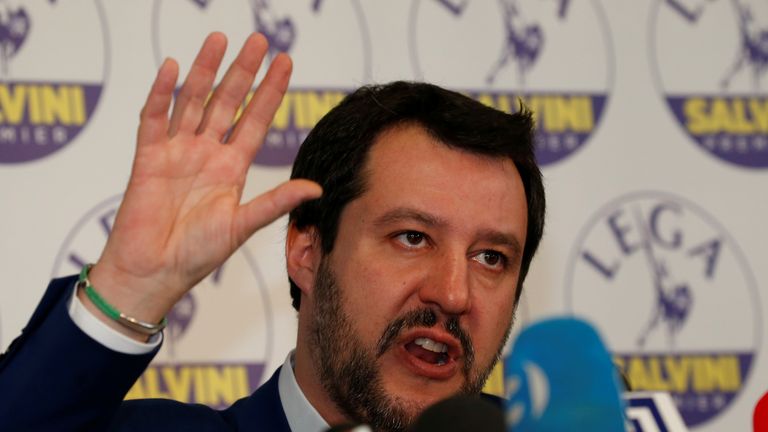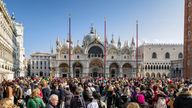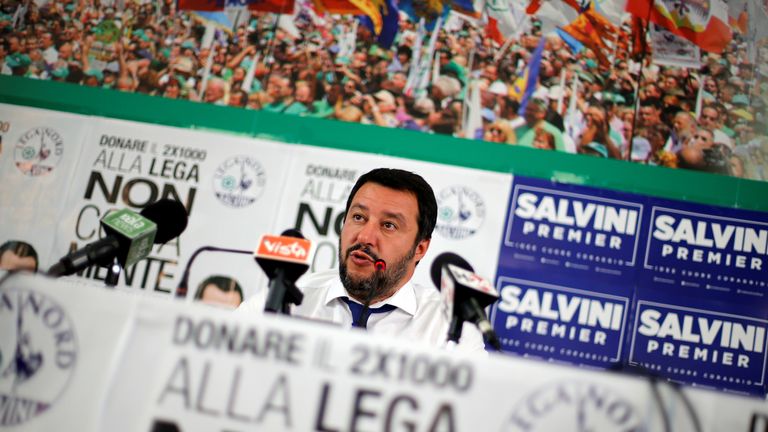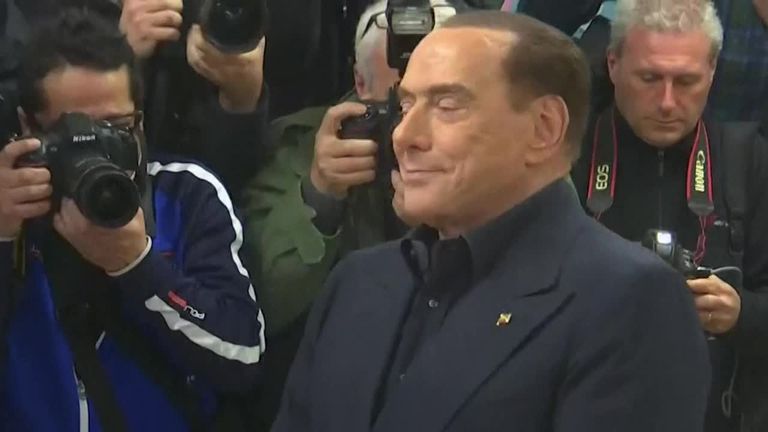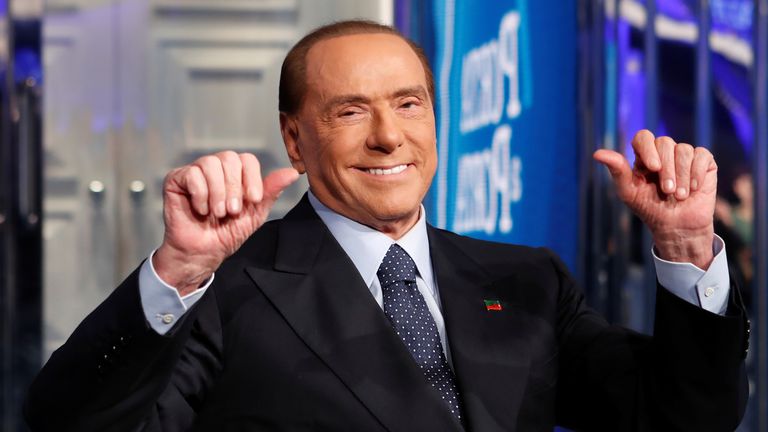Italy election: Populist parties claim right to govern after poll stalemate
A right-wing coalition is set to win the most votes overall, with the populist 5-Star Movement the biggest single party.
Monday 5 March 2018 16:05, UK
Political parties in Italy have been claiming their right to form the next government following the election stalemate.
The anti-establishment 5-Star Movement saw its support soar to become Italy's largest single party, with approximately 31% of the vote.
A coalition of the far-right League party and ex-prime Minister Silvio Berlusconi's Forza Italia is set to win the most seats in the lower house of parliament.
Despite overseeing a modest economic recovery, the ruling centre-left coalition came a distant third, polling at around 23% of the vote.
The centre-left was hit by widespread anger over persistent poverty, high unemployment and an influx of more than 600,000 migrants over the past four years.
Luigi Di Maio, leader of the 5-Star Movement, said on Monday his party's strong showing throughout the country means that it should run the next government.
Just half an hour earlier Matteo Salvini, leader of League, made the same claim on the part of the centre-right coalition which collectively has more votes than 5-Star.
It means a political headache for President Sergio Mattarella who has to choose someone to form a government when neither of the blocs have enough to govern alone.
Mr Di Maio said: "We are a political force that represents the entire nation. We represent the whole boot, from Val D'Aosta to Sicily."
He said the successes of the other groups were more regional and called the vote "post-ideological - it goes beyond the left and the right".
The 5-Star movement tripled its number of parliamentarians over the last election in 2013, when it was also the first party but only by a whisker and the government was formed by the Democratic Party.
Mr Salvini said his party's surge at the polls was due to its economic proposals, not its anti-immigration stance.
He said the migrant issue was just "one problem" facing Italy and that League has clear ideas on how to resolve it.
Voteres were attracted by "the idea that Italy recovers, works, that every once in a while stays home on Sunday to enjoy its own children, have grandparents who don't die in assembly lines", he added.
His group captured nearly 18% of the Italian national vote on Sunday, and the right-wing bloc of parties allied with League won 37% overall.
The surge of populist and eurosceptic movements in the eurozone's third-largest economy will worry Europe, though neither 5-Stars nor League are advocating an exit from the European Union.
:: Analysis: Italian coalition dealing won't be pretty
:: What you need to know about Italy's election
The Democratic Party's Michele Martina, a minister in the outgoing government, said the result was a "very clear defeat".
According to Rai TV, the coalition would win between 225 and 265 seats in the lower house, far short of the 316 needed for a majority.
Five-Star would get between 195 and 235 seats.
:: Italy's election marred by voter confusion
During the voting, a topless protester leapt on to a table in front of Mr Berlusconi as he was about to vote.
The election was held amid a weak economy, widespread distrust of the political class and growing anxiety over migration.
Euroscepticism has also been rising in Italy, a country where pro-EU sentiment used to be rock-solid.
Election turnout was 71.48%, the Interior Ministry said, a slight drop from the 75% of eligible voters who participated in the 2013 election.
